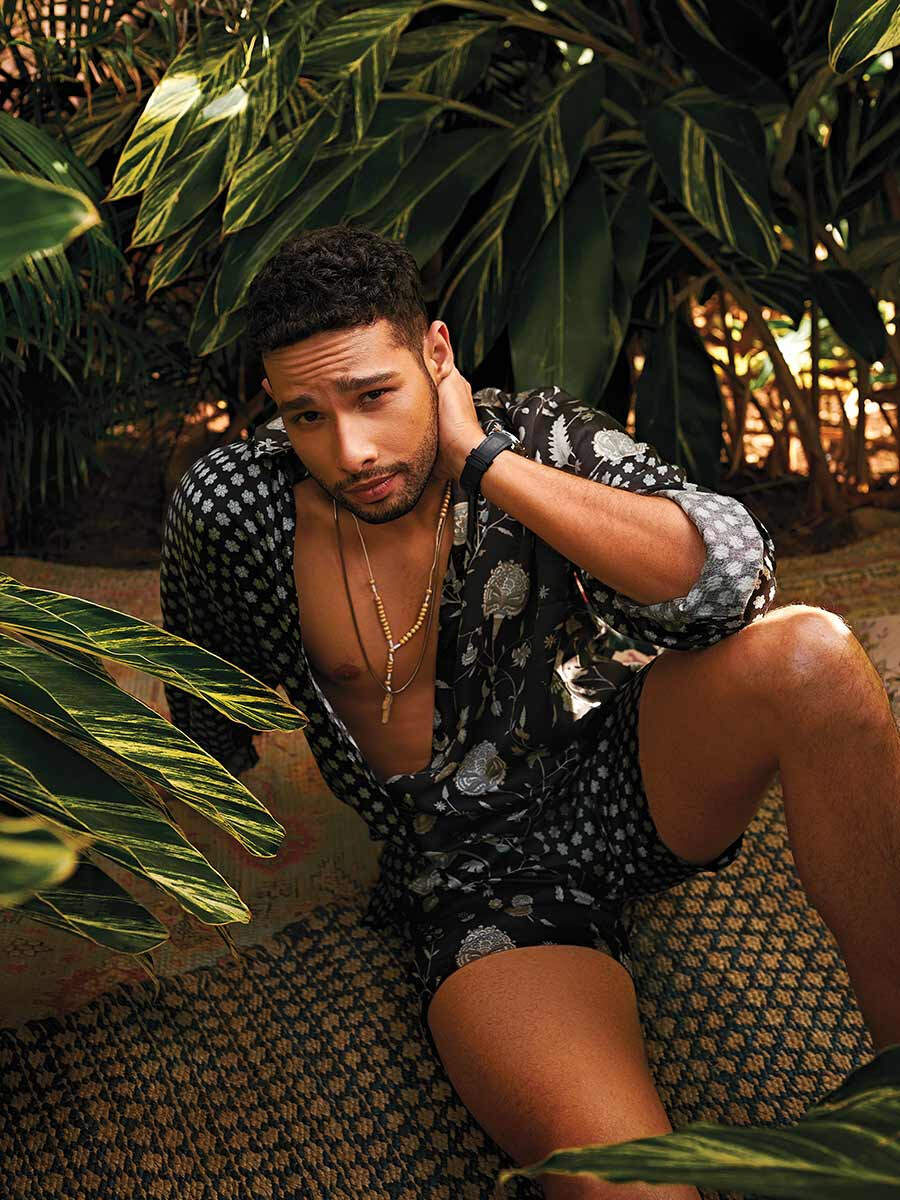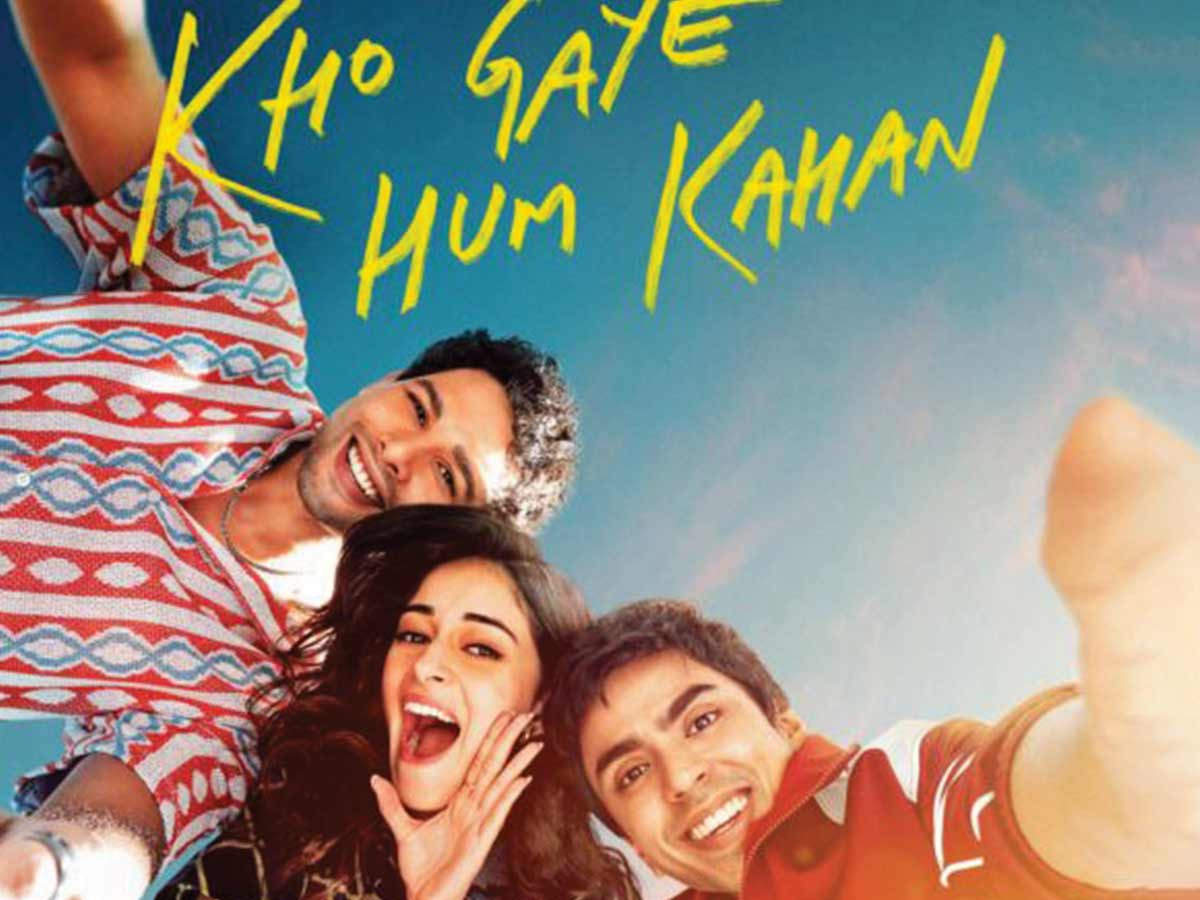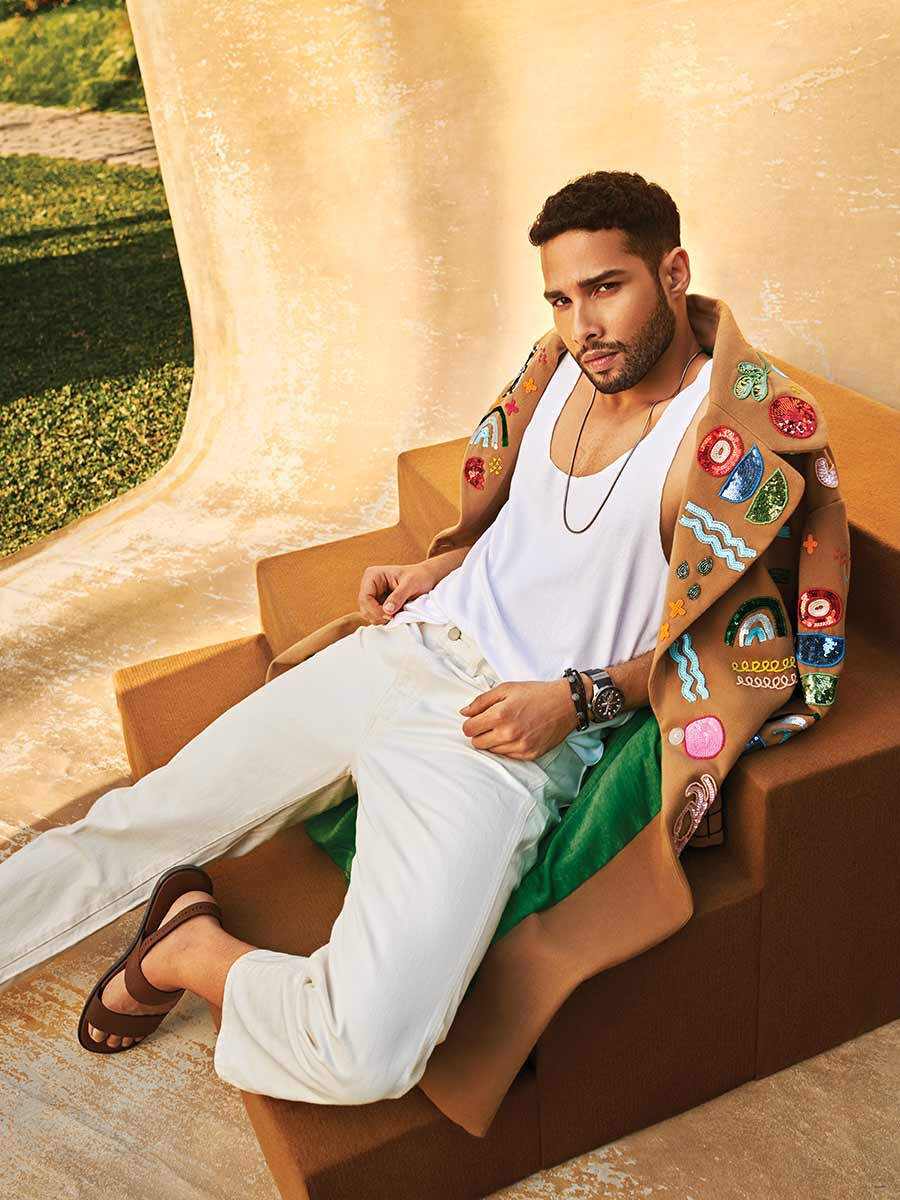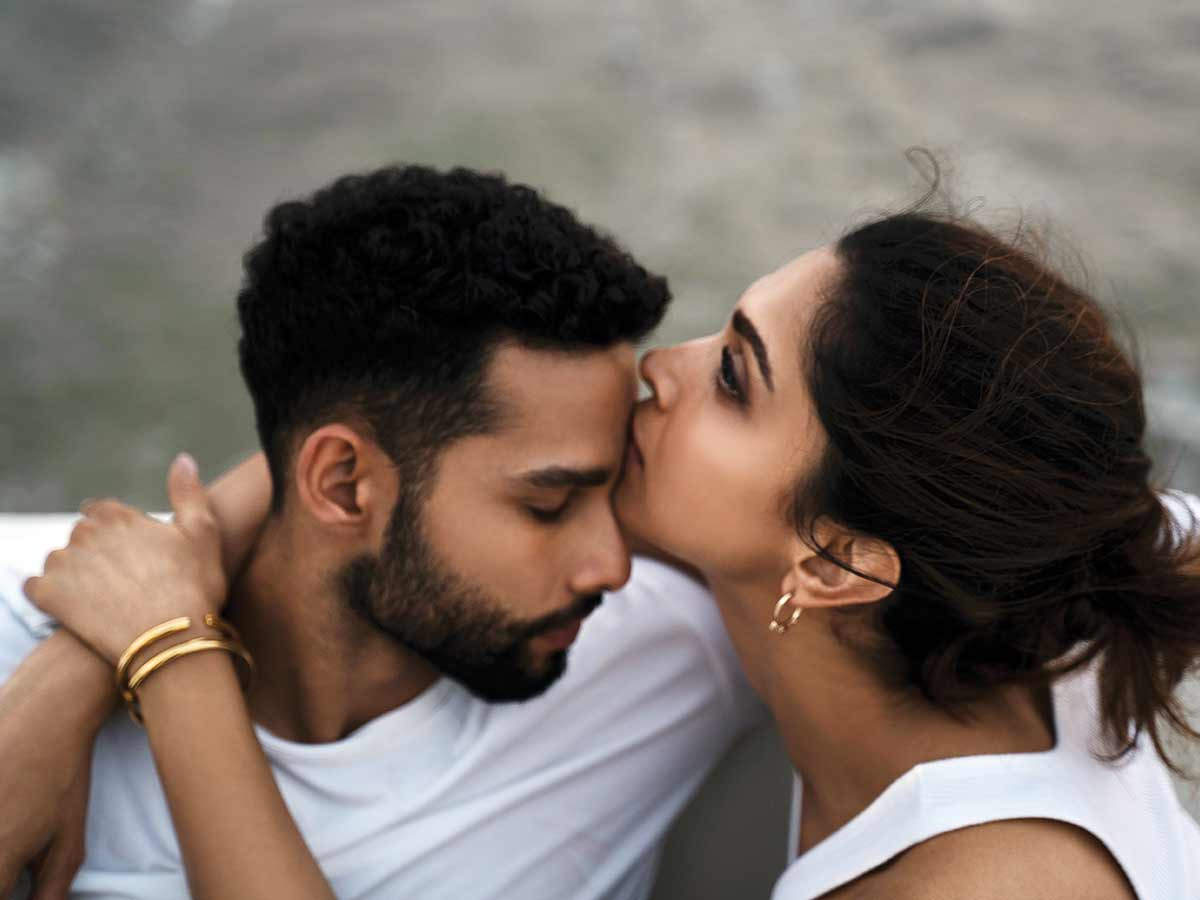
After spending seven years in the industry... Do you think you have finally arrived?
My parents and friends believe that I’ve arrived. But I feel like I need to do more. I need to work harder. I need to do something more. I don’t feel like I’ve arrived. I don’t sleep well because of it. I am still hoping that something magical happens at the next box office. I’m expecting a big film next, or if not, an International film. Because I have that, I want to be someone who can represent India on a global scale. All I have are my dreams. So, when I think I’ve arrived, I think point khatam ho jayega.
Kho Gaye Hum Kahan was very much appreciated by the audience and critics as well. Tell us, how do you identify with Imaad?
I do not identify with any of the roles I have played. I always intend to choose characters who aren’t like me. Playing myself on screen is extremely boring for me. I just want to keep playing different characters and step outside of my comfort zone. So, honestly, you should not identify with anything. I don’t think I’m a good rapper, I don’t think I’m funny, and I don’t believe I cheat. The only thing in common is friendship, which I strongly identify with. I am like a guy who loves to have his friends around, and I am always there for my friends, so the friendship part is something that I understand.
What kind of equation do you share with Ananya Pandey?
It has always been enjoyable to spend time with her. We’ve been evolving as actors together since Gehraiyaan, and we complement each other well. On and off screen, we’re always dealing with the Tom and Jerry equation. And yes, she is a good friend. We’ve always had fun together, which is why the chemistry on screen is so obvious. We are fond of each other. We hang out, we party, and she’s become a good friend in the process and I hope to work with her again.

She’s a star kid. While working, does the thought of nepotism crop up, where you end up thinking that these kids get an advantage?
Initially, I would feel this way because I have also experienced a lot of rejection. So there was a lot of sourness and hurt from the rejection. But eventually, I learnt to coexist. Because I realised with maturity and understanding that the audience chooses talent and true talent will never go to waste, regardless of where you come from. The business will have its own mechanism, and the end result will be what it is.
What’s your criteria for choosing a script?
Right now, I want to be part of romantic films because
I believe they are becoming rare. I’d like to do something new and challenging that pushes the boundaries. Cinematic boundaries may not be accepted by everyone, but I hope to learn something new. I believe that even if you cannot win the game, you can change it.
Is there any difference between a star and an actor?
An actor is somebody who is unaffected by the noise around them. A star is someone who also understands the noise around them and has their own responsibilities. Because a star has to listen to the audience, they want to see you in a certain way. An actor is like, I will play characters,
I will touch emotions, and I will do it for the craft. So they both have their own responsibilities.
Which category do you place yourself in?
I want to find a middle ground, find a nice, sweet equilibrium between stardom and being an actor where I am trying to do a bit different things and am doing it for the craft and at the same time, commerce is also being elevated and the audience is also happy.

What is stardom for you?
True stardom is where you have the choice. To be able to choose what you want to do rather than being pressured.
When you entered the industry, what was an eye-opener for you?
The PR culture was a real eye-opener. Previously, I believed that a star did not need to do anything; he would do his films, and he is a star because of them. Later, I learnt that public relations is extremely important. I’ve studied marketing and come from a financial background, I denied it for the longest time. I said my craft would speak for itself because, like Gully Boy, I appeared out of nowhere. After the film was released, there was an unexpected boom. I realised that a star is also a product of marketing and public relations, which I am still learning.
Is it tough to be yourself?
I want to be treated equally, as I am and as I was. I never wanted to be a film star, have authority or power over anyone; all I wanted was the audience’s love. When people treat you better in some way, when people will pull a chair for you, or when people will move aside because you are coming, I don’t like that. I’d like to walk with other people. I want to talk to people. I just want to sit and be with people, and that is what I believe.

What inspires you to write poetry?
When I see the world now from a different perspective, that really inspires me to write my thoughts down. It is meditative in a way. Because there is so much noise you need to calm down and know where you are coming from or where you have to head. Writing down helps me kind of collect my thoughts, and I also share them with people as a way of connecting with them because a lot of people may be going through the same thing. It’s mostly my 19-year-old self speaking to the 30-year-old, where he is still innocent and manifesting and that’s what I want to retain. And that’s why I write those thoughts down so that I can read and understand where I come from and not forget my roots.
Your take on love?
Love is comprehension. It is communication and the connection fades over time. Perhaps my parents don’t hold hands like that. But I’ve never witnessed a love like theirs. That maturity will eventually come. And it has been present in every generation.
What’s your rule for love and relationships?
Love with purity. Many times, you are unable to say I love you, but you love someone deeply, just as a father-son relationship. I haven’t told my father, “I love you, papa” until now. I have not even told my mother, “I love you.” But I know there is a lot of love, and for me, love is something you should feel within yourself.
What factors are important in maintaining a relationship?
Communication and transparency are key. When things aren’t going well, it’s best to talk them out and find a solution.
What is your deal-breaker in a relationship?
Not accepting my life, my family, and my friends. I am the product of all the people I’ve loved. These are the people I adore, so if you don’t accept them, you don’t accept me. So that’s a deal breaker for me.

What would be your relationship advice to the young generation?
My relationship advice would be to meet in person more often. Simply be transparent with whomever you are with, because many things may fade away over time. However, the person you truly love and the person who adores you will be there for you. If you have a fight or an argument with your partner, do not discuss it with your friends or family because you may reconcile. However, their perception of your partner may change, making it difficult for you to solve or resolve the situation.
Actors are said to be extremely critical of themselves.
I often criticise myself because I grew up in an environment where there was a lot of bullying in school. In a middle-class family, no one praises you. You are constantly told what’s wrong. All of this has been instilled in you to the point where you require validation in your life. I continue to criticise, but it does help you grow in some ways. That is something that helps me grow and improve because we are always undervalued. So we criticise ourselves sometimes, but that’s okay. It strengthens us and drives us to evolve.

SHOW COMMENTS